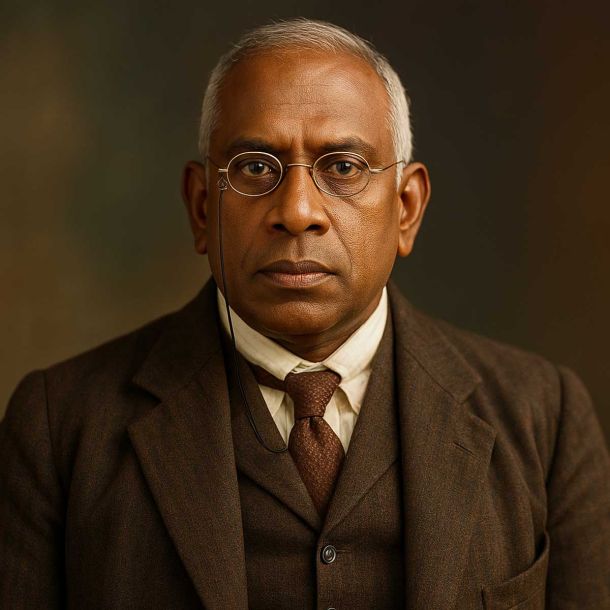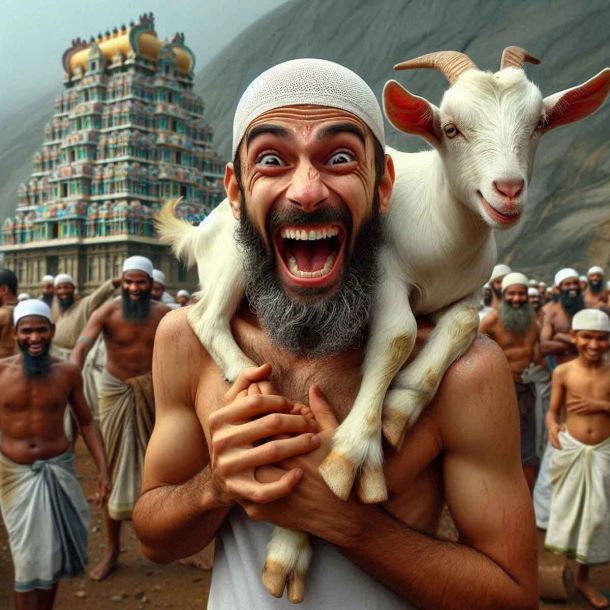MORE COVERAGE
The Residue of Islamism - Hindu Society Under Siege
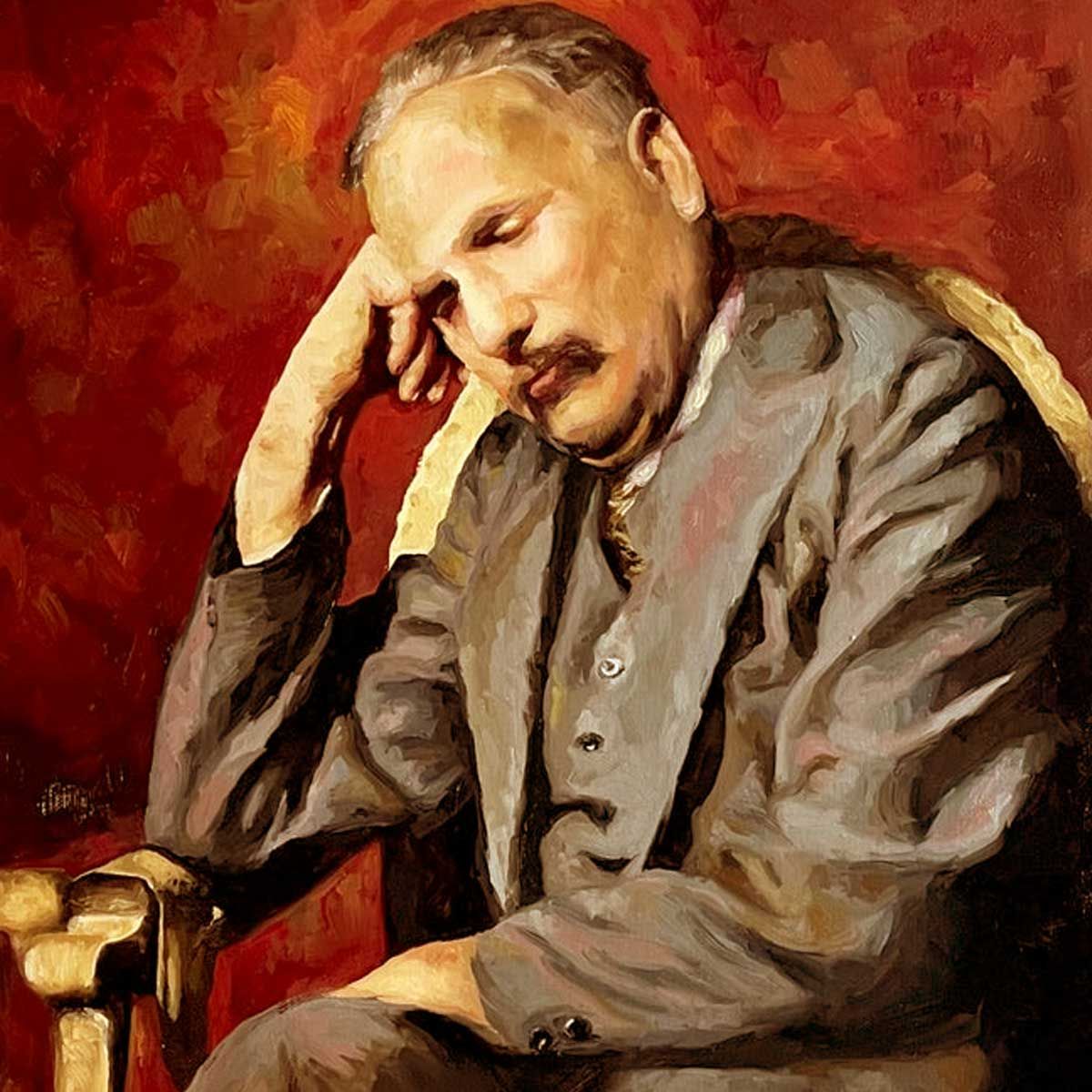
The most malevolent of these residues is Islamism, the residue of the Muslim invasion of India spread over several centuries. Its basic tenets are ultimately derived from the teachings of Islam which has so far succeeded in sealing itself off from every shade of empiricism, rationalism, universalism, humanism and liberalism, the hallmarks of Hindu as well as modern Western culture.
But in the context of India where Islam failed in its mission of lasting conquest and total conversion, these tenets have acquired a singularly sinister and subversive character.
Let it be clear that the reference here is not at all to our Muslim brethren who are our own flesh and blood, except for that microscopic minority which takes pride in the purity of its Arab, Persian or Turkish descent.1 Instead of being the proponents of Islamism, the Muslims of India are its victims whom it is trying to use as vehicles of its poisonous virulence. The vast majority of Indian Muslims were converted to Islam by force or allurements. But the conversion did not help them socially or culturally as their status today in India’s Muslim society should amply prove. The Muslims of India, therefore, have to be freed from rather than accused of Islamism.
What we mean by Islamism is a self-righteous psychology and a closed cultural attitude which make it impossible for its converts to coexist peacefully and with dignity with other people. There are many Hindus who share several tenets of Islamism. On the other hand, there are many Muslims who are frightened by Islamism and who would gladly join the mainstream of Indian nationalism if they are freed from the whiphand which a minority of theologians, politicians and hooligans has come to wield in their community.
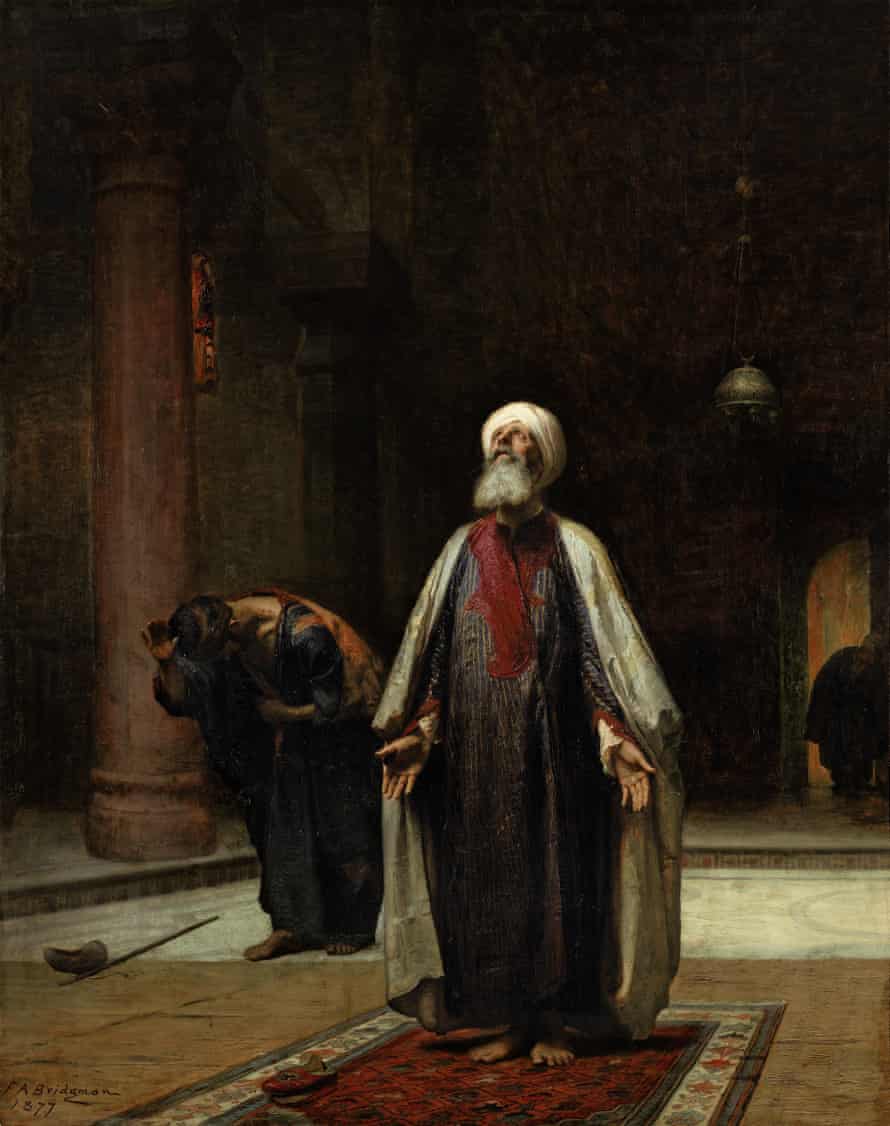 |
Those who want to know Islamism first-hand and in full measure are referred to Shaikh Sir Mohammed Iqbal’s two long poems which he wrote quite early in his career, and which earned for him the title of Allama among the adherents of this cult. These are the Shikwã and the Jawãb-i- Shikwah which Mr. Khushwant Singh has recently published in an English translation.
The Shikwã ends by summing up that ‘naghmã hindî hai tau kyä, lai tau hijazi hai mirî’, that is, ‘no matter if my idiom is Indian, my spirit is that of Hijaz’. Hijaz is that part of Arabia in which Mecca and Medina are situated. The Jawãb-i-Shikwah ends on a still more strident note. Allah announces to the Allãmã His supreme message for mankind in the following words: ‘kî wafã tûne muhammad se tau ham tere hain’, that is, ‘if you are faithful to Muhammad, I shall be faithful to you.’
Now, there are many Muslims in India who have never heard the name of Iqbal or listened to his muse. And there are many Hindus whose admiration for Iqbal is immeasurable. No, Islamism does not refer to any particular section of Indian society. It refers to that intellectual-or unintellectual- attitude which awards the monopoly of truth and virtue to a particular prophet, and consigns all knowledge to the pages of a particular book.
Taking our cue from Allãmã Iqbal and his lesser cohorts like Altãf Hussain Hãlî, we can safely summarise the credo of Islamism in the following five fundamentals:
- That Indian society before the advent of Islam was living in utter spiritual, moral and cultural darkness (jãhilîya) like pre-Islamic Arabia;
- That Islam brought to India the only true religion, the only authentic moral values, the onlyhumane culture, and the only progressive social order;
- That this civilizing mission of Islam in India could not be completed, as in many other lands of Asia and Africa, due to the intervention of the wily British who cheated Islam of its empire in India, mostly by means of fraud;
- That while the creation of Pakistan has been a triumph and consolidation of the power of Islam, west of the Ravi and east of the Hooghly, the conquest of India by Islam remains an unfinished task;
- That Islam has a right to use all means, including force, to convert this Dãrul-harb of an India into a Dãrul-Islam, so that a Hakûmat-i-Ilãhiyah could liquidate all traces of jãhilîya and impose the law and culture of Islam.
There are many Hindus like the late Pandit Sunderlal who fully accept the first two fundamentals of Islamism. It is a different matter that their logic fails them at this stage and they do not proceed to the next three fundamentals which follow irrevocably. And there have been many Muslims like the late Rafi Ahmed Kidwai and Justice M.C. Chagla who rejects these fundamentals as repugnant.
Having thus outlined its version of past Indian history, and the apocalypse towards which future Indian history should be forced to travel, Islamism has evolved a strategy in which the Muslims of India are envisaged as a base and an arsenal. Some salient features of this strategy can be outlined as follows:
- The Muslims of India, particularly the Muslim intelligentsia, should be sealed off from every shade of rationalism, universalism, humanism and liberalism, and an army of mullahs and maulvis trained in the tenets of Islam should be let loose to brainwash and keep them along the right track;
- Every Muslim who does not accept Islamism or dares criticize it or stands for the mainstream of Indian nationalism, away from and above religious differences, should be denounced as a renegade and a legitimate victim for murderous Muslim mobs;
- The Muslims should be encouraged to air as many grievances as can be invented, and try to pass off as a down-trodden minority, oppressed, exploited and treated as second class citizens by the ‘brute’ Hindu majority;
- These contrived grievances of the Muslims should be used to convert the Muslim community into a compact vote-bank which can function as a balancing factor in as many electoral constituencies as possible, and which can blackmail all non-Islamist political parties to accommodate Muslim candidates or include the maximum measure of concessions to the Muslim community in their election manifestos;
- The Muslims should be made to agitate for India’s support to all international Islamic causes, right or wrong, legitimate or illegitimate, so that their attention is kept constantly diverted from demands of their own economic, social and cultural condition;
- The Muslims should be progressively persuaded and prepared to stage street riots on the slightest pretext, be it a stray pig, or music before a mosque, or Urdu, or the minority character of the Aligarh Muslim University, or a purely personal fracas between toughs belonging to two communities, or the bombing of al-Aqsa mosque in Jerusalem by an Austrian adventurer, or the hanging of Z.A. Bhutto by President Zia of Pakistan, or the capture of the Ka’ba by some disgruntled faction in Saudi Arabian politics, or some other similar event in the Islamic world at large;
- The frequent riots should be used to frighten the Muslims who should then be coaxed to create, consolidate and extend exclusive Muslim enclaves which can be stocked with arms and ammunition, imported or otherwise.
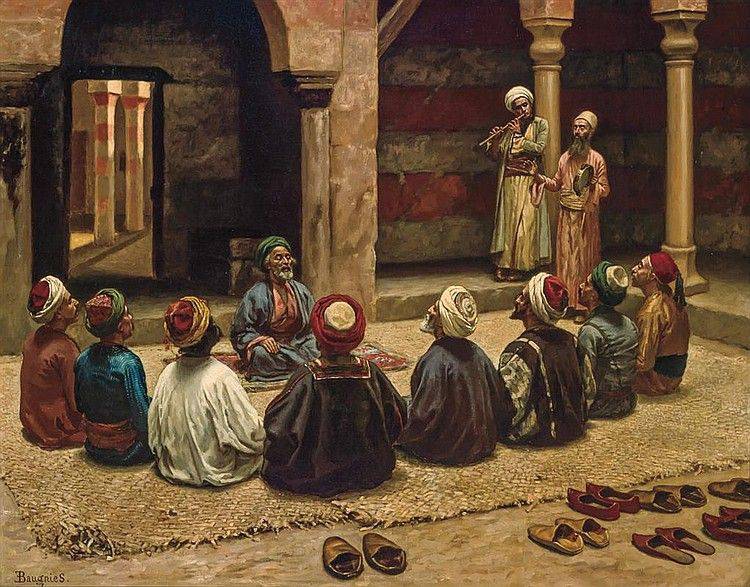 |
The seven-fold strategy is aimed at the Muslims in India who are to be brainwashed, blackmailed, frightened and forced into the fold of Islamism. Another side of the same strategy has been worked out to neutralise, paralyse and blacken or pamper different sections of Hindu society so that the road is cleared for the forward march of Islamism. Some salient features of this secondary strategy can be outlined as follows:
- The concept of Secularism which is enshrined in the Constitution of India and which has become the most sacred slogan for all our political parties should be distorted, misinterpreted and misused to the maximum to block out the least little expression of Hindu culture in the state apparatus and public life of India;
- The terms ‘communal’ and ‘communalism’ which have become terms of abuse in India’s political parlance, should be carefully cultivated and more and more mystified to malign all those organisations, institutions and parties which do not serve Islamism, directly and/or indirectly;
- The accusation of being fascists and anti-secularists should be hurled at all those individuals and organisations who question the exclusive claims of Islam and its culture, who know and tell the truth about Islamic scripture and history, and who see through the Muslim game of grievances;
- All praise and support should be extended to those Hindus who go out of their way to champion Islamic causes, national and international, and who see in Islam and its culture those higher values which Islamism claims for them;
- All available platforms should be used to defeat and frustrate the emergence of a genuine and positive Indian nationalism by always harping on India’s multi-racial, multi-religious, multi-language, multi-national, and multi-cultural character.
Islamism did make some headway among the Muslims in Independent India mostly because the dominant section of Hindu intelligentsia partronised it for various reasons. The Congress politicians patronised it because they found out very soon that they were in a minority among the Hindus, and that they could survive in power only by combining a solid Muslim vote with whatever Hindu vote they could get. The Socialists went out of their way to patronise it partly because they harbour an anti-Hindu animus and partly in the hope of securing Muslim vote - a hope which has not as yet come anywhere near fulfilment.
The Gandhians partronised it because they no more remembered that their great Master, Mahatma Gandhi, was a Hindu with a profound faith in Sanãtana Dharma, and because they misunderstood his doctrine of non-violence towards all people, including the Muslims of India, as an endorsement of Islam. The Communists patronised it because they saw in it a powerful ally in their campaign against Hindu society which they viewed as their main enemy. The self-alienated Hindu intellectuals patronised it out of sheer animus towards Hindu society and culture which they were out to damn on any pretext. Extending patronage to Islamism thus became a pastime for all those who wanted to pass off as large-hearted liberals, progressives and secularists.
But in the absence of local resources and international patronage, the progress of Islamism in India was rather slow. Pakistan, which was its only patron abroad, could not provide much help beyond some hysteria in its mass media and propaganda in international political forums. The several wars which India was forced to fight with Pakistan to the disadvantage of the latter, also inhibited Islamism in India from acquiring the requisite degree of self-confidence.
The use of oil as a political weapon by Islamic countries and the influx of petro-dollars in plenty from several Arab countries, particularly Libya and Saudi Arabia, since the early seventies, has given to Islamism in India a new glow of self-confidence in one sudden sweep. This influx of Arab money is a natural and inevitable phenomenon because, in the last analysis, Islamism is only another name for Arab imperialism which had, at one stage of its history, pillaged and populated with its own progeny many foreign lands and which even today keeps many non-Arab nations spiritually enslaved.
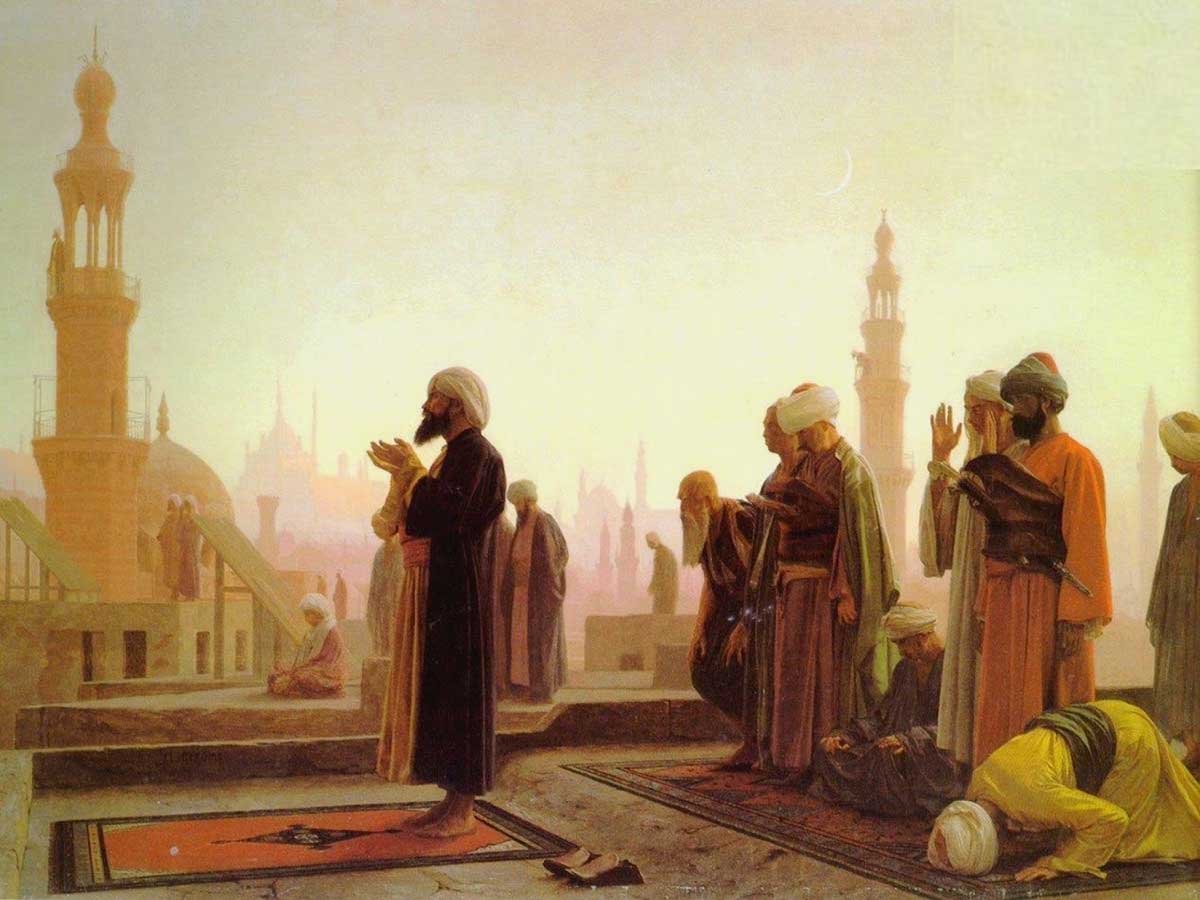 |
Islamism in India is now busy employing to the maximum advantage the Arab money which is pouring in through many channels and in increasing quantities. Some of these uses are very obvious to the eye. A few salient features of the new scenario can be listed as follows:
- The rapid rise of a powerful press, mostly in Indian languages, and many publishing houses to propagate Islamism
- The generous funding of old and the founding of many new maktabs, madrasas and institutes for teaching Islam and training missionaries who are then employed at high salaries for purifying the faith of die Muslim flock and seeking new pastures for converts to Islam
- Buying of land and real estate all around in urban and rural areas by individual Muslims and Islamic institutions and organisations at whatever prices available
- Manufacturing and storing of arms in mosques, Muslim homes and localities and training of Muslim toughs
- Holding of frequent conferences, national and international, and taking out demonstrations in support of every Islamic cause
- Financing Muslim politics and inducing Muslim politicians to infiltrate and ingratiate themselves in every political party, and function from every public platform
- Bribing secularist Hindu intellectuals, scribes public workers and politicians, and buying them up for supporting Islamism, denigrating Hindu culture, and character-assassinating those who oppose Islamism
- Using the lure of money for winning converts to Islam from the weaker sections of Hindu society, particularly the Harijans
The strategy is nothing new. The self-same strategy had been used by the Muslim League for the carving out of Pakistan. Only the aid and abetment which the British provided at one time have been replaced by the aid and abetment from Arab countries. And in the matter of a mere decade, Islamism in India has assumed the same menacing proportions as it had on the eve of Partition. The parallel should make us pause.
- Part 1 - Significance of Hindu Society - Hindu Society Under Siege
- Part 3 - The Residue of Christianism - Hindu Society Under Siege
- Part 4 - The Residue of Macaulayism - Hindu Society Under Siege
- Part 5 - The Communist Conspiracy - Hindu Society Under Siege
- Part 6 - The United Front of Hostile Forces - Hindu Society Under Siege
Further reading on the subject, we recommend:
Mohammed and the Rise of Islam by D.S. Margoliouth
Muslim Attack on Sikhs and Hindus in the Punjab, 1947 by Gurbachan Singh Talib
Hindu Temples: What happened to Them, 2 Volumes
The Calcutta Quran Petition by Chandmal Chopra
Jizayah and the Spread of Islam by Harsh Narain
Muslim Separatism: Causes and Consequences by Sita Ram Goel
References:
K.S. Lal, Indian Muslims: Who Are They, Voice of India, New Delhi, 1990
voiceofdharma.org - Hindu Society Under Siege - Sita Ram Goel - Voice of India, New Delhi
 Support Us
Support Us
Satyagraha was born from the heart of our land, with an undying aim to unveil the true essence of Bharat. It seeks to illuminate the hidden tales of our valiant freedom fighters and the rich chronicles that haven't yet sung their complete melody in the mainstream.
While platforms like NDTV and 'The Wire' effortlessly garner funds under the banner of safeguarding democracy, we at Satyagraha walk a different path. Our strength and resonance come from you. In this journey to weave a stronger Bharat, every little contribution amplifies our voice. Let's come together, contribute as you can, and champion the true spirit of our nation.
 |  |  |
| ICICI Bank of Satyaagrah | Razorpay Bank of Satyaagrah | PayPal Bank of Satyaagrah - For International Payments |
If all above doesn't work, then try the LINK below:
Please share the article on other platforms
DISCLAIMER: The author is solely responsible for the views expressed in this article. The author carries the responsibility for citing and/or licensing of images utilized within the text. The website also frequently uses non-commercial images for representational purposes only in line with the article. We are not responsible for the authenticity of such images. If some images have a copyright issue, we request the person/entity to contact us at This email address is being protected from spambots. You need JavaScript enabled to view it. and we will take the necessary actions to resolve the issue.
Related Articles
- Moplah Genocide of the Malabar Hindus, 1921: Thousands of Hindus slaughtered
- Operation Polo: When India annexed Hyderabad from the Nizam and Razakars, the suppression of Hindus and the role of Nehru
- Calcutta Quran Petition: A petition to ban the Quran altogether was filed 36 years ago, even before Waseem Rizvi petitioned for removing 26 verses from Quran
- Goa Inquisition and massacre of Native Hindus by Portuguese: A Forgotten Chapter of the Bloody History of the European Colonization of India
- Aurangzeb banned Diwali 350 years ago, Courts and governments are just following Mughal ruler
- Speech of Sardar Patel at Calcutta Maidan in 1948 busts the myth of ‘Muslims chose India’ and is relevant even today
- What is the reality of the Sufis: In Their Own Words
- Nehru's Himalayan Blunders which costed India dearly - Integration of Princely States
- Haunting history- 50 years of Operation Searchlight in Dhaka
- Why Hindu-Sikh genocide of Mirpur in 1947 ignored? Why inhuman crimes of Radical Islamists always hidden in India?
- The Islamic Doctrine of Permanent War: Jihãd and Religious Riot
- Prophecies of Jogendra Nath Mandal getting real after seventy years of his return from Pakistan
- Father of the Nation! Absolutely not. Mohandas Karamchand Gandhi was not the father of the nation either officially or otherwise
- Godse's speech and analysis of fanaticism of Gandhi: Hindus should never be angry against Muslims
- Tragedy or Drama: Mufti Mohammad Sayeed's daughter Rubaiya abduction led to free five most notorious terrorists
Related Articles
Twitter Coverage
Satyaagrah
Written on
Satyaagrah
Written on
Satyaagrah
Written on
Satyaagrah
Written on
Satyaagrah
Written on



